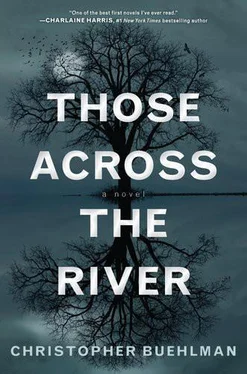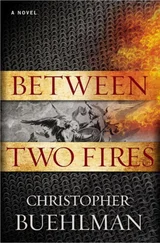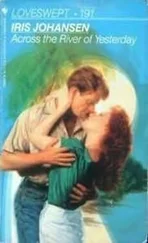“I am the gangster,” Frank said, “but they closed down my speakeasy so I had to make like a bird and fly south.”
“When you gonna fight your roosters?” Mike said.
“Quiet as a church mouse all day, but once he gets started he don’t shut up,” said Paul.
“On second thought,” I said, spying Dora across the town square, “I am the rooster. And if you gentlemen will excuse me, I see a French hen I have some business with.”
I INTERCEPTED EUDORA as she crossed the town square. She was just about to reprove me for something, probably being away from my typewriter, but I kissed her so hard she forgot whatever it was. The sound of good-natured whistles from the porch of the general store cut us short, and we both giggled like kids.
We sat on the benches near the tea roses, and Dora told me about her day with the Nobles, how Arthur Noble showed her the pecan orchards he harvested to sell in the mill town and at his service station. She told me how Ursie bounced at her heels all day, manhandling her new kitten. She had wanted a cat for some time and, owing to a worsening mouse problem, Arthur had finally relaxed his opposition to the idea. Four days ago he had found a little grey kitten in a box with three dead siblings and brought the live one home. Having met Arthur briefly, I voiced my unworthy suspicion that he found four living cats but didn’t want that many underfoot. Dora pinched me.
I was about to mention the Negro who came into the general store, but what was there to tell? A well-mannered colored man had come to the general store to buy salt, and when he left, the Southern gentlemen had mocked him and told stories about him.
At just that moment I saw him come out of Estel Blake’s hardware shop with a spool of wire around his shoulder and the bag from the general store in his hand. He was chewing the last of his pickle. He crossed the square lawn diagonally, making right for us.
He was staring at Dora.
He stopped in front of us.
His nostrils widened as he took in our scent.
He kept staring at Dora.
Unbidden, the word nigger rose up in my head and almost pushed its way into my mouth. The barbarous impulse to spit that word at him and animalize him with it was so strong that tamping it down paralyzed me. For several long seconds all I could do was stare at him while he stared at Dora and she stared at the ground.
“I believe you are making the lady uncomfortable,” I said, although neither of us was convinced by the undercurrent of menace I tried to inject. I was flatly no match for this powerfully built man.
He bowed cordially then.
“Beggin your pardon, marse,” he said, and turned lithely away from us, walking off down the road that led east. Dora’s nose wrinkled in distaste.
But she did watch him go.
I thought about him all the way home.
Was there an accent to his speech? It was faint.
He didn’t sound like a Georgia black; that much was sure.
When I got home, I went back down to the musty, spidery cellar amongst the reeking boxes of my aunt’s that might be full of trash or treasure. I sat in front of the typewriter for some time without hitting a key. I just stared at the dirty window without seeing it, thinking about the pregnant days before the States’ War, the days when everyone knew what was coming, but not how hungry it was, how long it would stay.
IT WAS LATE August when I went to interview Bessie Wilcox at the Sunny Rest nursing home just outside the mill town. I hated the euphemistic names they hung on nursing homes, as if old folks were small children who didn’t know what was in store for them. If I opened one I’d call it Yelling All Night Manor or Chafing Acres. Granted, I might not attract many tenants, but they would be realists.
Sunny Rest, while not as bad as some of the desperately overcrowded and perpetually uric facilities I had seen on Chicago’s South Side, distinguished itself with a kind of hopeless torpor that had also spread to the staff, which on this hot afternoon consisted of a scarecrowish, twitchy white woman with her hair lacquered unbecomingly to her head and a pillow-bosomed colored lady who seemed half-asleep.
I asked them if I might speak to Mrs. Wilcox on the pretext that I was her nephew. They were accommodating enough.
I winked at Mrs. Wilcox, and she nodded from her bed and motioned Dora and me to sit down. The old folks waiting to die in these places would say the Devil was their nephew for the chance to talk to somebody new.
Her blue eyes blinked a lot behind her dirty glasses.
“You ain’t my nephew. I got three livin. Two of em’s in Atlanty and the last one’s in the can. Tell me who you are, though.”
“Frank Nichols. Dottie McComb was my aunt.”
“Oh,” she said. “You here for the money? Cuz I ain’t got none. Or I wouldn’t be here.”
“No, ma’am.”
“That’s good. You’re a good boy. I’d a never let Henry borrow that money if I’d knowed about the boll weevils; lost everything any damn way. Would you reach me some tea?”
She motioned towards a sweating, chipped pitcher on the nightstand and a cup with a blue flower on it.
Dora beat me to her feet and poured the cup full. Bessie took it, and got a lot of it on her chin and down her front when she drank. I saw Dora look around for a towel, but there wasn’t one.
“Mrs. Wilcox, I’m actually here because I’m writing a book about the war, and I was hoping to ask you some questions.”
“What’s she for?” she said, indicating Dora.
“Taking notes.”
“Huh.”
“What do you remember about the States’ War?”
“So you must be Katherine’s.”
“Yes, ma’am.”
“Prettiest child I ever saw.”
“Thank you.”
“I was just a little girl durin that war. A little barefoot girl.”
“Anything you remember would help.”
“I wish my girls had been pretty like that, but Henry, he wasn’t much to look at. After a pretty man breaks your heart, you’re happy for a plain man. You gonna break this one’s heart?”
“No, ma’am.”
“No, I reckon not,” she said, looking at Dora for the first time. “Reckon she’s gonna break yours.”
“Let’s hope not,” I said.
“Yep. She will. She got them crazy, two-daddy eyes on her.”
Dora bowed her head and wrinkled her mouth, trying not to laugh.
“Mr. Gordeau said you were born in 1854. Is that right?”
“December. Almost a Christmas baby, but my mama prayed on it so I wouldn’t be.”
“Do you remember Lucien Savoyard? Did you ever meet him?”
“Mr. Savoyard? Everybody met him. He was a gentleman, like they don’t make no more. He sat a good horse, all rich in his blue and silver waistcoat, prettiest cloth I ever saw. I remember askin my mama would the angels wear gowns made a that? It was silk. First time I ever saw silk. He let me touch it.”
I looked over at Dora to make sure she was getting this. Her pencil flew.
“You look like your mama in the head. In your long, pretty head. But you got them soft eyes like she did. Like you’d let a lot of bad happen to you afore you’d stand up.”
“I hope you’re wrong.”
“I ain’t. So you’re Katherine’s?”
I nodded.
“Who’s she?” she asked, pointing arthritic fingers at Dora.
“I’m his wife,” she said. “Do you remember the Savoyard Plantation?”
“Course I do. Mama rode me by it on the mule once or twice, and I even got to go in one time. Just before the war. He threw a big Christmas party and opened his house up to all them from Whitbrow and Morgan wanted to come. He had put up these painted angels from France and all these glass icicles that caught the firelight. All the grown-ups were dancin. He danced once with my mama and that was fine, but when he danced with her again, Pappy made us go home. I didn’t want to go. All them candles and ornaments and peppermint candies. The house nigger had oil on his face to make it shine. It was a magic night.”
Читать дальше












